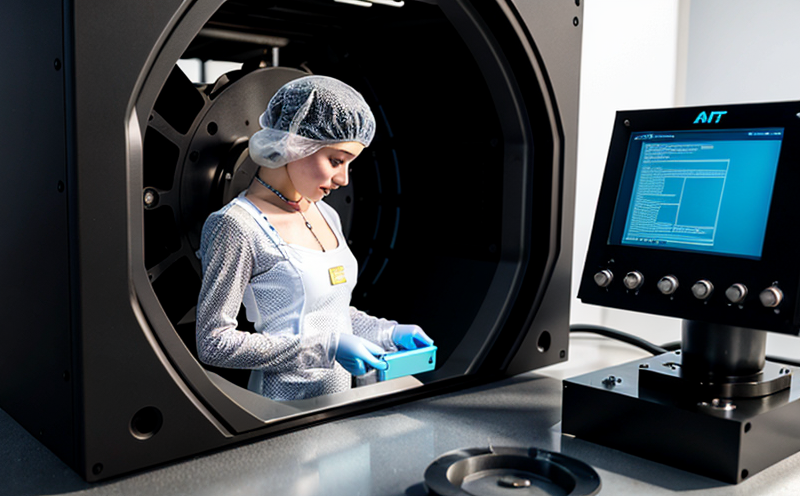ISO 52921 Process Validation and Quality Assurance of AM Components
The ISO 52921 standard is pivotal in ensuring that additive manufacturing (AM) processes are validated and their quality assured. This process involves a series of rigorous steps aimed at confirming the repeatability, reproducibility, and reliability of AM components through thorough validation protocols. For quality managers, compliance officers, R&D engineers, and procurement specialists, this service ensures that products meet international standards for robustness and consistency.
The standard emphasizes the importance of process validation in ensuring that the additive manufacturing processes are capable of producing parts within specified limits consistently. This is achieved through a series of controlled experiments designed to demonstrate that each process parameter has been optimized and validated. The process involves multiple stages, including initial qualification, optimization, and ongoing monitoring.
The first stage, initial qualification, is critical for establishing the baseline parameters required for successful manufacturing. During this phase, all relevant process parameters are identified and set. This includes selecting the appropriate raw materials, defining the geometry of the part being manufactured, setting up the machine settings, and configuring the software used in the process.
The second stage, optimization, involves fine-tuning these parameters to achieve the desired quality outcomes. This is done through iterative testing and adjustments until the optimal conditions are achieved. Once optimized, the process enters the third stage, ongoing monitoring and control, where continuous checks are performed to ensure that all processes remain within the established limits.
The ISO 52921 standard also emphasizes the importance of documentation throughout this process. Detailed records must be kept for each step, including raw material specifications, machine settings, software configurations, test results, and any adjustments made during optimization. This comprehensive approach ensures that every aspect of the additive manufacturing process is accounted for and can be reviewed at any time.
The standard also stresses the need for regular audits to ensure compliance with all aspects of the validation protocol. These audits are conducted by independent third parties who verify that the processes adhere strictly to the prescribed standards. This not only builds confidence in the reliability of the AM components but also provides a safeguard against potential quality issues.
By adhering to ISO 52921, organizations can ensure that their additive manufacturing processes are validated and their products meet international quality standards. This is particularly important for industries where precision and consistency are critical, such as aerospace, medical devices, and automotive sectors.
Why It Matters
The importance of ISO 52921 cannot be overstated in the context of additive manufacturing. By validating processes according to this standard, organizations ensure that they are producing components that meet stringent quality criteria consistently. This is crucial for industries where reliability and safety are paramount.
- Reduces the risk of product failure
- Ensures compliance with international standards
- Promotes trust among stakeholders
- Facilitates smoother regulatory approvals
The standard also helps in reducing costs associated with rework and scrap by ensuring that processes are optimized from the outset. This leads to increased efficiency and improved product quality, which is essential for maintaining a competitive edge in the market.
Industry Applications
| Industry | Main Applications |
|---|---|
| Aerospace | Critical components, such as engine parts and structural elements |
| Medical Devices | Bespoke implants and surgical tools |
| Automotive | Racing parts and lightweight vehicle components |
| Consumer Electronics | Prototyping and small-batch production of electronic devices |
The ISO 52921 standard is particularly relevant in industries where precision, repeatability, and reliability are crucial. By ensuring that processes are validated according to this standard, organizations can produce components that meet the highest quality standards consistently.
- Aerospace manufacturers rely on AM for producing critical parts such as engine components and structural elements
- Medical device companies use AM for creating bespoke implants and surgical tools
- Automotive firms apply AM to prototype racing parts and produce lightweight vehicle components
- Consumer electronics companies leverage AM for rapid prototyping and small-batch production of electronic devices
International Acceptance and Recognition
The ISO 52921 standard is widely recognized and accepted across the globe. Its adoption ensures that additive manufacturing processes are validated in a consistent manner, promoting international interoperability.
- Recognized by major industry bodies
- Accepted in regulatory frameworks globally
- Used as a benchmark for quality assurance worldwide
The widespread acceptance of ISO 52921 underscores its importance in the additive manufacturing sector. By adhering to this standard, organizations can ensure that their processes meet international standards and are recognized by global stakeholders.
Many countries have incorporated ISO 52921 into their national regulations, further emphasizing its significance. This recognition ensures that products validated according to this standard can be used confidently in various markets without the need for additional validation.





